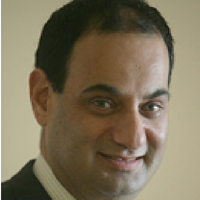
 There would hardly be a SMSF trustee or member (especially in the retirement phase) who is not suffering in this low interest rate environment.
There would hardly be a SMSF trustee or member (especially in the retirement phase) who is not suffering in this low interest rate environment.
SMSFs have historically held a healthy percentage of their assets in cash or term deposits. While this strategy has worked in the past, it is now hurting their investment returns with the cash rate currently at 2%.
Well, I have no good news to offer on that front. If anything, the weight of economic opinion suggests the cash rate could go lower before it rises again.
But trustees are nothing if not resilient. The evidence suggests that far from throwing their collective hands up in the air in despair, they are adapting to this new investment environment. Despite what the top end of town often says about their lack of investment acumen, I would argue that they are typically resourceful when faced with changing investment dynamics, especially when they work in partnership with a skilled advisor.
It’s just not me saying so. The latest edition of the SMSF Association and nabtrade report on the SMSF sector, titled the 2015 Intimate with Self-Managed Superannuation, highlights that trustees are adapting by looking at other asset classes to deliver growth and yield. The shift in asset allocation is still minor in the overall scheme of things, but it is happening nonetheless. Two of the beneficiaries are international equities and commercial property.
I suspect international equities will continue to receive a larger proportion of investment monies for two key reasons; a stagnating Australian market and growing opportunities overseas, especially in the US market. Although Australian equities have enjoyed a bigger increase in asset allocation in this latest report, the performance experienced by the banks stocks that dominate our share market suggest this is unlikely to continue.
The story in the US, however, is quite different. After the world’s largest economy struggled for years in the aftermath of the GFC, all the evidence now suggests that the US has finally got a full head of steam. Although geo-political events (of which there is no shortage) do tend to cause market fluctuations, the evidence to date suggests these have short-term effects, and that the underlying economic fundamentals will continue to drive the markets upwards.
What is truly significant in the US and globally is the fact that both institutional and retail investors are holding large levels of cash, still wary even seven years since the collapse of Lehman Brothers announced to the world the onset of the GFC. What will happen when both these classes of investors finally believe in the American recovery, and invest accordingly, could fuel growth rates not seen since pre the GFC. Remember, too, that cash rates are low and in some cases negative in real terms.
Inevitably, the US will have to raise rates but this will simply confirm the fact that the US economy is a good story. Indeed, the market typically underestimates the speed with which the Fed increases rates – and what this means for the bond market.
US equities are fully but not overvalued and offer a high dividend yield compared with bonds and cash: they are definitely not in bubble territory when you consider US growth prospects. The other exciting opportunity that the world’s largest share market offers is the far larger diversification of stocks, such as technology, health and consumer discretionary. The contrast with the Australian market could not be starker where the banks and big resource stocks dominate.
To my mind, the SMSF investment narrative to date – cash and fully franked Australian blue chips – is coming to an end. At a time of high volatility and low yields, trustees will have no choice but to look to other asset classes and overseas to achieve their desired outcomes. It won’t be easy for many trustees, and many will need specialist advice. But as they have shown in the past, trustees will rise to the challenge.
 George Lucas is the managing director of Instreet Investment
George Lucas is the managing director of Instreet Investment
Never miss the stories that impact the industry.